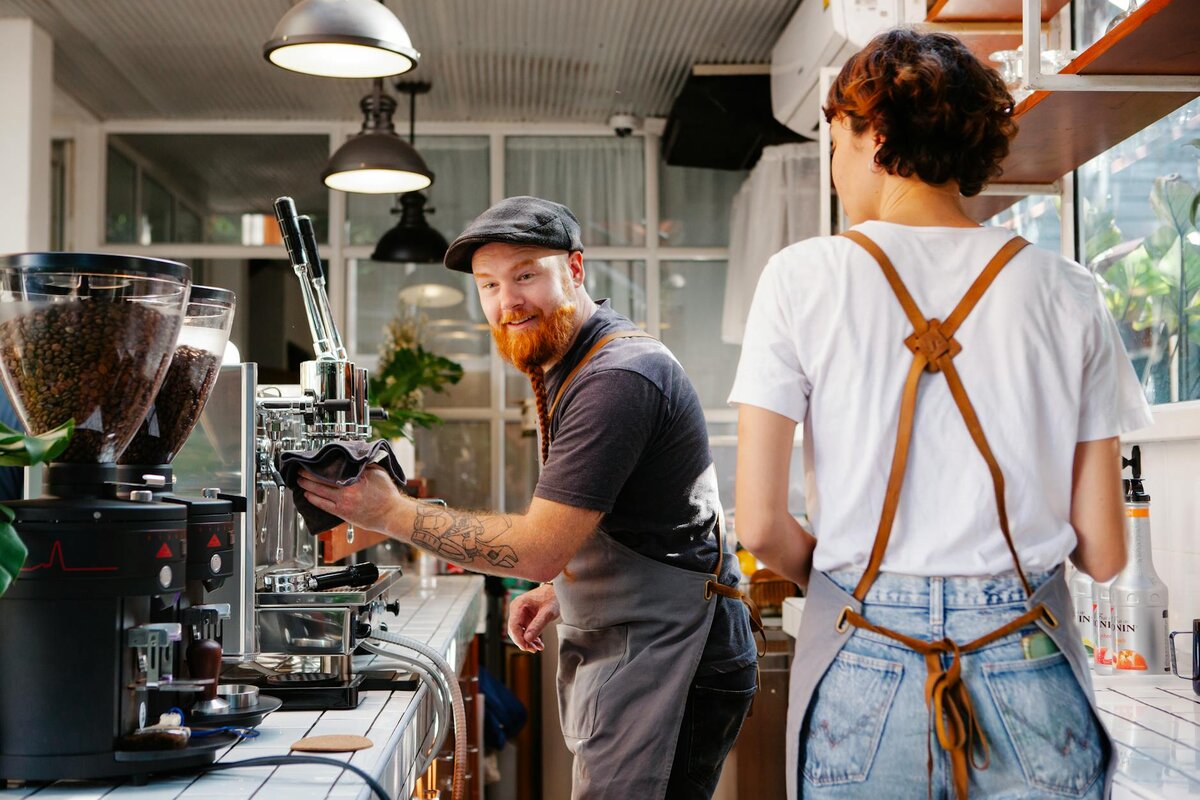Let’s Break This Down Together...
Not sure if that extra cash from your hobby needs to be taxed? Whether you’re selling crafts online or doing a bit of tutoring, it’s easy to wonder when a hobby turns into a business.
This guide explains the £1,000 Trading Allowance, how HMRC views hobby income, and when you need to register for Self Assessment. It also covers common side hustles like selling, streaming, and renting.
By the end, you’ll know exactly where you stand and what to do next if your income crosses the line. Let’s dive in!
What Counts as Hobby Income vs Trading Income?
HMRC doesn’t have a specific “hobby tax” category. Instead, they look at whether your activity counts as a hobby or actual trading.
They use something called “badges of trade” to figure this out. These are signs that suggest you’re running a business rather than just enjoying a hobby. Common examples of trading activities include regularly buying goods to resell, making items to sell for profit, or providing services for payment.
The main things HMRC considers include how often you’re selling and whether you’re trying to make a profit. They also look at how organised your activity is and if you’re modifying items specifically to sell them. HMRC may also consider whether the item you are selling is a personal possession or an asset, as business assets are treated differently for tax purposes.
For example, if you buy items at car boot sales to sell online at a markup, that looks more like trading than a hobby.
Do I Need to Register for Self Assessment for Hobby Income?
The simple answer is: you need to register for Self Assessment if your trading profits exceed £1,000 in a tax year.
This £1,000 is known as the Trading Allowance and applies to your profits (income minus expenses), not just your total sales. If you’re clearly running a business – with regular sales and business-like operations – you should register regardless of profit levels.
The deadline to register is 5th October after the tax year in which you started trading. So if you began trading in the 2024/25 tax year, you’d need to register by 5th October 2025. You must be registered with HMRC as self-employed if your profits go over the threshold.
Missing this deadline can result in penalties, so it’s worth sorting sooner rather than later.

Understanding the £1,000 Trading Allowance
The Trading Allowance is a lifesaver for casual sellers and hobby entrepreneurs. It means the first £1,000 of your trading income each tax year is completely tax-free.
If your hobby income is under £1,000 for the year, you don’t need to tell HMRC about it at all. No tax return, no registration, no hassle.
However, if you use this allowance, you can’t also claim expenses against your income. It’s one or the other.
The allowance applies per person, not per activity. In addition to the trading allowance, everyone also has a personal allowance, which is the amount of income you can earn each year before paying income tax. The personal allowance is separate from the trading allowance, and both can affect how much of your income is tax-free. So if you sell crafts and do some tutoring, the £1,000 covers both activities combined.
Remember that this is different from the separate £1,000 Property Allowance, which applies to income from land or property.
Common Hobby Income Activities and Their Tax Status
Online selling through online marketplaces like eBay, Etsy, Facebook Marketplace or Depop can be tricky. If you’re just selling unwanted items, it’s usually not taxable. However, if items are sold for profit or you regularly buy things to resell, that’s likely trading and may be taxable. But if you’re buying things to resell, that’s likely trading. I learned this the hard way when my weekend habit of flipping vintage cameras caught HMRC’s attention.
Craft making is another grey area. Occasional craft fair sales might count as a hobby, but regular online orders suggest a business.
Social media content creation, including YouTube ad revenue and Instagram sponsorships, typically counts as trading income once it becomes regular.
Gaming and streaming earnings from platforms like Twitch are generally considered trading income, even if you see gaming as your hobby.
Occasional services like dog walking or tutoring are considered a service and fall under the same rules. Irregular, small income might be hobby income, but regular clients suggest trading. If this is your only income and it stays below the £1,000 trading allowance, you may not need to report it.
Renting out a spare room or property, or earning rent from short-term lets, can also count as hobby income if it’s occasional and under the threshold, but regular renting or higher rent income must be declared to HMRC.

Online Platforms and Tax Obligations
The rise of online platforms has made it easier than ever to turn hobbies and side hustles into real income streams. Whether you’re selling goods on eBay, offering services through Etsy, or making extra money on other digital platforms, it’s important to understand how income tax applies to your earnings.
If you’re generating income from online sales or services, you benefit from the £1,000 trading allowance each tax year. This tax free allowance means you won’t need to pay income tax or file a self assessment tax return if your total trading income from all sources stays under £1,000. But once your income from online platforms and other side hustles goes over the 1,000 trading allowance, you’ll need to tell HMRC, register for self assessment, and start paying tax on your profits.
Accurate records are essential. Keep track of all your sales, income, and any actual expenses related to your trading activities. This includes not just your online sales, but also any employed income, rental income, or other sources that make up your total income for the tax year. When you fill out your assessment tax return, you can deduct allowable expenses from your income to work out your taxable profits.
It’s also important to know the difference between a hobby and a business. If your online activity is more than just an occasional sale and you’re actively trading, you may need to register as a sole trader. This means you’ll be responsible for submitting self assessment tax returns and paying any tax due on your profits.
Record-Keeping for Hobby Income
Even if your income falls below the £1,000 Trading Allowance, it’s wise to keep basic records of what you earn.
This helps if HMRC ever questions your status or if your hobby grows into something bigger over time.
Keep track of all sales and income received, including dates, amounts, and where the money came from. Make sure to collect all income and expense information systematically to ensure accurate record-keeping and proper declaration.
Save receipts for materials and other expenses related to your hobby, as well as other costs that may be deductible. These prove your actual profits if needed.
Keeping detailed records also allows you to offset allowable expenses against your income if you need to file a tax return, helping to reduce your taxable profits.

Final Thoughts
When you're unsure if your hobby income requires Self Assessment, it's always better to check with HMRC directly or speak to a tax professional.
The £1,000 Trading Allowance gives casual sellers some breathing room, but once you cross that threshold, proper tax reporting becomes essential.
Tax rules can shift, and what starts as a hobby might grow into a business as you gain more customers. Regular reassessment of your status helps you stay compliant.
Being proactive about understanding your tax position is always better than facing potential penalties down the line.
Pie: Simplifying Do I Need to File a Self Assessment for Hobby Income in the UK?
Figuring out when your hobby becomes taxable shouldn't give you a headache. Pie helps you track different income streams in real-time.
Our simple bookkeeping tools capture all your hobby sales and expenses automatically. This makes it easy to see your true profit position at any time.
When your hobby income does require reporting, we handle the Self Assessment filing directly with HMRC. You'll never miss a deadline again.
Take a look at Pie if you'd like to see how we can make your hobby income tax worries disappear.







